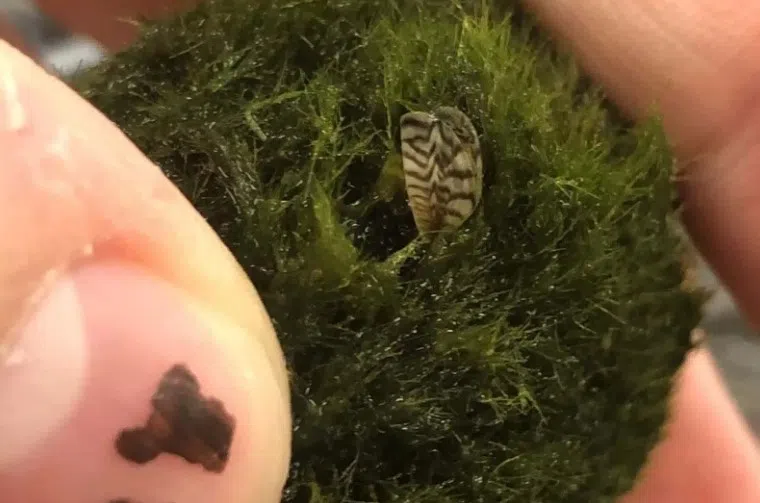
Boat propeller infested with zebra mussels/via Government of BC
The discovery of a zebra mussel in Washington State has the Invasive Species Council of BC sounding warnings.
The zebra mussel was found by a sharp-eyed wholesaler in Washington State, where — like BC — the zebra mussel has yet to take hold.
“Right now we’re asking everybody in British Columbia, if you’ve got moss balls, and you’ve bought them recently, to be alert and check your aquarium to make sure you haven’t got any signs of zebra mussels in your aquarium. And if you do, there’s certain protocols you have to take and report that,” said Gail Wallen, Executive Director of the Invasive Species Council of BC.

Zebra mussel discovered in an aquarium moss ball/via WDFW
She says if the zebra mussels are able to infiltrate an area like the Shuswap, it could devastate the local ecosystem and economy.
“The risk of invasive mussels to British Columbia is huge. It’s millions of dollars annually that we’d have impacted, but it will greatly destroy our lakes and shorelines that are so important to many of us, never mind the aquatic habitat that’s there,” said Wallen. “You want to get your boat inspected. You want to make sure that there’s no chance of having the mussels, which technically you can see if they’re small, but you can’t see the young, immature mussels called ‘villagers,’ which are actually microscopic.”
Zebra and quagga mussels are able to attach themselves to boats and drain pipes, and are virtually impossible to eradicate once they take hold.
“While the focus in this case is on zebra mussels, other aquatic invasive species are causing serious damage in B.C. waters – some of which started as pets or plants in water gardens and aquariums,” said the Invasive Species Council of BC. “For example, goldfish released by pet owners can grow to the size of footballs outside the tank. They are known to reduce food sources and cause habitat loss for local species.”















